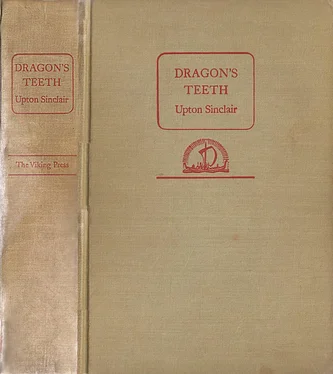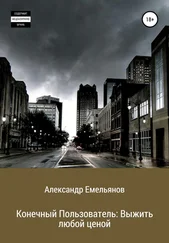Пользователь - o 3b3e7475144cf77c
Здесь есть возможность читать онлайн «Пользователь - o 3b3e7475144cf77c» весь текст электронной книги совершенно бесплатно (целиком полную версию без сокращений). В некоторых случаях можно слушать аудио, скачать через торрент в формате fb2 и присутствует краткое содержание. Жанр: Старинная литература, на русском языке. Описание произведения, (предисловие) а так же отзывы посетителей доступны на портале библиотеки ЛибКат.
- Название:o 3b3e7475144cf77c
- Автор:
- Жанр:
- Год:неизвестен
- ISBN:нет данных
- Рейтинг книги:4 / 5. Голосов: 1
-
Избранное:Добавить в избранное
- Отзывы:
-
Ваша оценка:
- 80
- 1
- 2
- 3
- 4
- 5
o 3b3e7475144cf77c: краткое содержание, описание и аннотация
Предлагаем к чтению аннотацию, описание, краткое содержание или предисловие (зависит от того, что написал сам автор книги «o 3b3e7475144cf77c»). Если вы не нашли необходимую информацию о книге — напишите в комментариях, мы постараемся отыскать её.
o 3b3e7475144cf77c — читать онлайн бесплатно полную книгу (весь текст) целиком
Ниже представлен текст книги, разбитый по страницам. Система сохранения места последней прочитанной страницы, позволяет с удобством читать онлайн бесплатно книгу «o 3b3e7475144cf77c», без необходимости каждый раз заново искать на чём Вы остановились. Поставьте закладку, и сможете в любой момент перейти на страницу, на которой закончили чтение.
Интервал:
Закладка:
entertainment if he expected others to furnish it to him.
II
Newspapers had been forbidden in the prison during this crisis; but you could get all sorts of
things if you had the price, and the Hungarian had managed to secure the Münchner Zeitung
of Monday. He permitted Lanny to have a look at it, standing against the wall alongside the
door, so as to be out of sight of any warder who might happen to peer through the square
opening in the door; if he started to unlock the door Lanny would hear him and slip the paper
under the mattress or stuff it into his trousers. Under these romantic circumstances he read
the flaming headlines of a radio talk in which his friend Joseph Goebbels had told the German
people the story of that dreadful Saturday of blood and terror. Juppchen had been traveling
about the Rheinland with the Führer, dutifully inspecting labor-camps, and he now went into
details, in that spirit of melodrama combined with religious adoration which it was his job to
instill into the German people. Said crooked little Juppchen:
"I still see the picture of our Führer standing at midnight on Friday evening on the terrace of
the Rhein Hotel in Godesberg and in the open square a band of the Western German Labor
Service playing. The Führer looks seriously and meditatively into the dark sky that has
followed a refreshing thunderstorm. With raised hand he returns the enthusiastic greetings of
the people of the Rheinland . . . In this hour he is more than ever admired by us. Not a quiver
in his face reveals the slightest sign of what is going on within him. Yet we few people who stand
by him in all difficult hours know how deeply he is grieved and also how determined to deal
mercilessly in stamping out the reactionary rebels who are trying to plunge the country into
chaos, and breaking their oath of loyalty to him under the slogan of carrying out a 'Second
Revolution.'"
Dispatches come from Berlin and Munich which convince the Führer that it is necessary to
act instantly; he telephones orders for the putting down of the rebels, and so: "Half an hour
later a heavy tri-motored Junkers plane leaves the aviation field near Bonn and disappears into
the foggy night. The clock has just struck two. The Führer sits silently in the front seat of the
cabin and gazes fixedly into the great expanse of darkness."
Arriving in Munich at four in the morning they find that the traitorous leaders have already
been apprehended. "In two brisk sentences of indignation and contempt Herr Hitler throws
their whole shame into their fearful and perplexed faces. He then steps to one of them and rips
the insignia of rank from his uniform. A very hard but deserved fate awaits them in the
afternoon."
The center of the conspiracy is known to be in the mountains, and so a troop of loyal S.S.
men have been assembled, and, narrates Dr. Juppchen, "at a terrific rate the trip to Wiessee is
begun." He gives a thrilling account of the wild night ride, by which, at six in the morning
"without any resistance we are able to enter the house and surprise the conspirators, who are
still sleeping, and we arouse them immediately. The Führer himself makes the arrest with a
courage that has no equal . . . I may be spared a description of the disgusting scene that lay
before us. A simple S.S. man, with an air of indignation, expresses our thoughts, saying: 'I only
wish that the walls would fall down now, so that the whole German people could be a
witness to this act.'"
The radio orator went on to tell what had been happening in Berlin. "Our party comrade,
General Göring, has not hesitated. With a firm hand he has cleared up a nest of reactionaries and
their incorrigible supporters. He has taken steps that were hard but necessary in order to save the
country from immeasurable disaster."
There followed two newspaper columns of denunciation in which the Reichsminister of Popular
Enlightenment and Propaganda used many adjectives to praise the nobility and heroism of his
Führer, "who has again shown in this critical situation that he is a Real Man." A quite different
set of adjectives was required for the "small clique of professional saboteurs," the "boils, seats
of corruption, the symptoms of disease and moral deterioration that show themselves in
public life," and that now have been "burned out to the flesh."
"The Reich is there," concluded Juppchen, "and above all our Führer."
III
Such was the story told to the German people. Lanny noticed the curious fact that not once
did the little dwarf name one of the victims of the purge; he didn't even say directly that
anybody had been killed! As a specimen of popular fiction there was something to be said for
his effusion, but as history it wouldn't rank high. Lanny could nail one falsehood, for he knew
that Hugo Behr had been shot at a few minutes after nine on Friday evening, which was at
least three hours before the Führer had given his orders, according to the Goebbels account.
The jail buzzed with stories of other persons who had been killed or arrested before
midnight; in fact some had been brought to this very place. Evidently somebody had given the
fatal order while the Führer was still inspecting labor camps.
It was well known that Göring had flown to the Rheinland with his master, and had then
flown back to Berlin. Hermann was the killer, the man of action, who took the "steps that were
hard but necessary," while Adi was still hesitating and arguing, screaming at his followers,
threatening to commit suicide if they didn't obey him, falling down on the floor and biting the
carpet in a hysteria of bewilderment or rage. Lanny became clear in his mind that this was the
true story of the "Blood Purge." Göring had sat at Hitler's ear in the plane and terrified him
with stories of what the Gestapo had uncovered; then, from Berlin, he had given the orders,
and when it was too late to reverse them he had phoned the Führer, and the latter had flown to
Munich to display "a courage that has no equal," to show himself to the credulous German people
as "a Real Man."
The official statement was that not more than fifty persons had been killed in the three days
and nights of terror; but the gossip in the Ettstrasse was that there had been several hundred
victims in Munich alone, and it turned out that the total in Germany was close to twelve
hundred. This and other official falsehoods were freely discussed, and the jail buzzed like a
beehive. Human curiosity broke down the barriers between jailers and jailed; they whispered
news to one another, and an item once put into circulation was borne by busy tongues to
every corner of the institution. In the corridors you were supposed to walk alone and not to
talk; but every time you passed other prisoners you whispered something, and if it was a tidbit
you might share it with one of the keepers. Down in the exercise court the inmates were
supposed to walk in silence, but the man behind you mouthed the news and you passed it on to
the man in front of you.
And when you were in your cell, there were sounds of tapping; tapping on wood, on stone,
and on metal; tapping by day and most of the night; quick tapping for the experts and slow
tapping for the new arrivals. In the cell directly under Lanny was a certain Herr Doktor
Obermeier, a former Ministerialdirektor of the Bavarian state, well known to Herr Klaussen.
He shared the same water-pipes as those above him, and was a tireless tapper. Lanny learned
Читать дальшеИнтервал:
Закладка:
Похожие книги на «o 3b3e7475144cf77c»
Представляем Вашему вниманию похожие книги на «o 3b3e7475144cf77c» списком для выбора. Мы отобрали схожую по названию и смыслу литературу в надежде предоставить читателям больше вариантов отыскать новые, интересные, ещё непрочитанные произведения.
Обсуждение, отзывы о книге «o 3b3e7475144cf77c» и просто собственные мнения читателей. Оставьте ваши комментарии, напишите, что Вы думаете о произведении, его смысле или главных героях. Укажите что конкретно понравилось, а что нет, и почему Вы так считаете.




